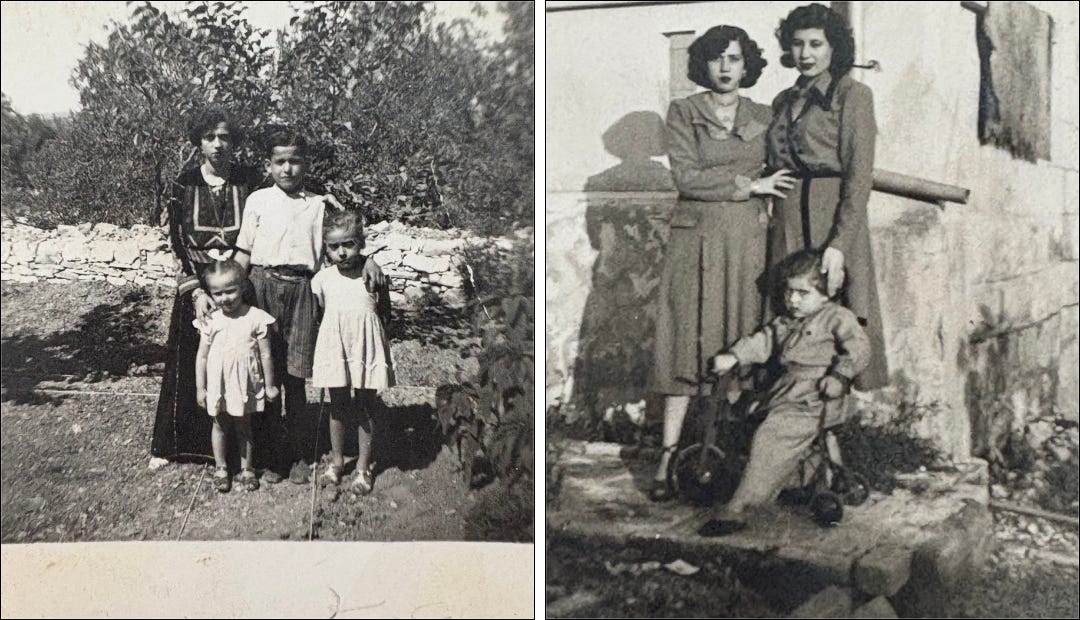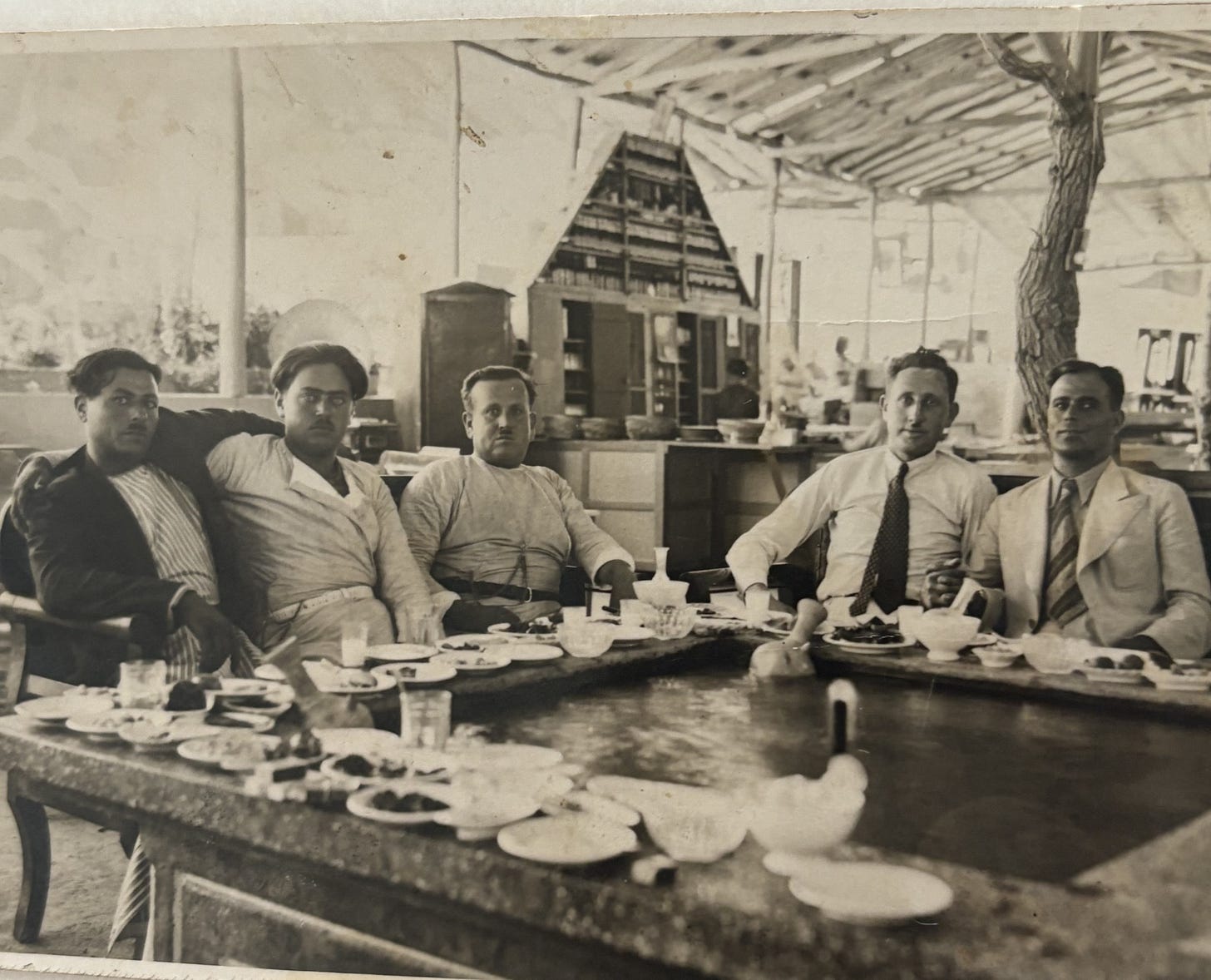Events
Upcoming Events in the Next Week
No Events for Your Query
We're sorry but there weren't any events for your query. Please try broadening your search. Also -- this could be us -- Pollitify is just getting started and, shocking, I know, there can at times be ahem software bugs. We are also still tirelessly scouring the Internet for more sources of events. Please check back later this week when you will be able to submit your own events.
If you just want to see functionality then please try searching for Indiana as the state. We are an Indiana company and events in Indiana always seem to show up first (at least for now).
October 2025
| Sun | Mon | Tue | Wed | Thu | Fri | Sat |
|---|---|---|---|---|---|---|
28 | 29 | 30 | 1 | 2 | 3 | 4 |
5 | 6 | 7 | 8 | 9 | 10 | 11 |
12 | 13 | 14 | 15 | 16 | 17 | 18 |
19 | 20 | 21 | 22 | 23 | 24 | 25 |
26 | 27 | 28 | 29 | 30 | 31 | 1 |
Suggest an Event
Want an event to appear on Pollitify? Just choose one of the options below. A couple of notes:
- Free. Adding an event is free. Of course it is free, we are pro democracy and we believe that the more grass roots events there are, the faster we achieve our shared goal: overthrowing fascism in America.
- Mobilize. Have a mobilize url for your event? Just drop it in the mobilize form below and we will automatically add the right information.
- Fast. To prevent spam, when you add an event without having an account, we do review the event before making it live but we're striving to get events up the same day.
Thank you for adding your event. Every event, whether a protest, a rally, a march or something else takes us closer to our goals.
Team Pollitify
The protest nerds behind this software
I want to add an event by:
| 0 | 0 | 0 |
Johnson backs off claim that Trump was an 'FBI informant' in Epstein case (Washington Post)
2025-09-07 21:45:00 UTC Washington Post |
||
| 0 | 0 | 0 |
Kennedy, Rejecting Data, Fuels Distrust of His Own Agencies (Sheryl Gay Stolberg/New York Times)
2025-09-07 20:45:01 UTC New York Times |
||
| 0 | 0 | 0 |
A decades-long peace vigil outside the White House is dismantled after Trump's order (Associated Press)
2025-09-07 20:25:01 UTC Associated Press |
||
| 0 | 0 | 0 |
Donald Trump Booed at U.S. Open Men's Final Match (Todd Spangler/Variety)
2025-09-07 19:45:00 UTC Variety |
||
| 0 | 0 | 0 |
America's Perón — Decades of personalist rule turned Argentina into a global economic laughingstock. (Scott Lincicome/The Atlantic)
2025-09-07 19:25:01 UTC The Atlantic |
||
| 0 | 0 | 0 |
Finding My Grandmother’s Ma’amoul Cookie in Brooklyn: A Story of Palestinian SurvivalOn a brisk fall Saturday morning at our local farmers market in Brooklyn, mere weeks after my family and I had settled into our new home, I found it. A cookie. Not just any cookie, but a ma’amoul. Versions of these delicate, date-filled pastries from the Middle East can be found in American bakeries, but this ma’amoul was different. It looked exactly like my Teta’s, my Palestinian grandmother’s: small, compact, sprinkled with powdered sugar and perfect imprints pressed into the dough. I liked to fancy myself a ma’amoul connoisseur, having devoured so many as a child. I was always sneaking one more when no one was looking, and I had no hesitation dismissing any imitation with precise criticism whenever it fell short of hers. There were many reasons for our move to the East Coast from Los Angeles. But what pushed us to act suddenly and decisively was our children. After October 7, it began with a barrage of words on social media and school pickups. Not at us, but around us, and then directly at them. I got a call from the school nurse one afternoon: my 8-year-old daughter had thrown up. When I arrived, she told me that a group of kids had called me and my mother “terrorists.” My 6-year-old son came home confused, asking why his friends kept wondering why he wasn’t “on the side of the good guys.” These weren’t just idle questions. They came from classmates who had clearly absorbed the conversations unfolding in their homes – conversations in which lines had already been drawn. My children were suddenly expected to justify their identities, to declare allegiance. Then came my son’s seventh birthday party a few months later. As the kids laughed and played, I looked up to find myself encircled by a group of mothers peppering me with questions about where my parents were born or how I chose my kids’ names (both are Arabic). Looking around for my husband, I wasn’t interested in turning my sons’ party into a debate. And when I glanced across the yard, I saw another mother had pulled my daughter aside, smiling as she told her, “Your names are Hebrew.” That night, my daughter asked me, point-blank: “Where was Teta born? Are we Israeli? Why can’t we say who we are? Why are people saying there is no such thing as a Palestinian?” She had always been gregarious, effortlessly at ease with others. But now she, too, was shrinking in the face of suspicion. And for the first time, they both began demanding answers about who they were allowed to be. We realized then that the silence we had thought might protect them had only made them more vulnerable. They needed us to speak, to give them a place where they didn’t have to erase themselves just to belong. And around us, it wasn’t just children absorbing the fear. Our neighborhood bookstore – nestled in an open-air mall that had been a fixture of my childhood – was forced to shut down for a day after it carried a book that included a historical overview of Hamas and its rise. A group of mothers stormed in, ambushed the young clerk (who identifies as Jewish), filmed themselves mocking and taunting the clerk, and then proudly posted the footage online. The store was forced to close temporarily, and so what did the mothers do? They hoisted an Israeli flag on the window and declared it “a Jewish neighborhood.” There was no room left for quiet, for code-switching, or for pretending. Not for us. And certainly not for our kids. When I was their age, in the same community, the hostility wasn’t overt – it was present, but in subtler ways. I learned to sense it in glances, in awkward pauses, in the questions that never quite sounded like questions. My American peers had been taught to fear people like my mother. People like me. I wasn’t taught to shrink, but I taught myself. As a third-culture kid who wanted to fit in, I learned to soften my identity to make others feel comfortable. But inside our home, there was no such thing as neutrality. My father, a Christian Armenian, was born and raised in Beirut by a family who had fled the Armenian Genocide – still denied by some, but a truth etched into our family’s history. My mother, a Muslim Palestinian, was born into the Nakba of 1948, forcibly displaced from her village along with over 700,000 other Palestinians. When they met at the American University of Beirut, civil war broke out, and they were forced to flee once again. War and exile weren’t events in our family history; they were its atmosphere. I grew up steeped in the stories. One summer, I’d be sitting at my Teta’s table in Amman, Jordan, shutters drawn against the heat, listening to my aunties and mom conjure memories of their home in Palestine – a longing and pain I registered but couldn’t quite grasp. Another summer, I might be with my cousins in Beirut, Lebanon, where their living rooms buzzed with men slapping down backgammon pieces and debating politics. Cigarette smoke hung in the air. I never thought it was strange that none of my relatives lived in the same country. Scattered across Jordan, Lebanon, and the Gulf – I understood instinctively that exile wasn’t a singular event. It was a condition. And when we returned to the United States, I always played my part. I tucked away the grief I didn’t yet recognize as grief and became the American girl who fit in. I laughed at the right jokes; I learned how to mold myself to be liked. And if I were to be honest, I enjoyed being a people pleaser a little too much. I buried the truth – that my parents carried trauma like scar tissue – and did what children do best: I adapted. My children didn’t have that context. They didn’t know how to read between the lines or preempt the assumptions. Their instincts weren’t shaped by fear or the need to blend in. When the world shifted around them, they didn’t know how to react. They looked to me for cues, but I had spent my life learning to go quiet. And for the first time, I could feel their disappointment in me. Everything changes when you are in charge of shaping another person’s worldview. Raising them in a hostile environment was something I did not want to do. Preserving their sense of humanity and ensuring they grew up in a community where they could be fully seen became my priority. I had the privilege and agency that my immigrant parents didn’t. I was determined to use it. The RecipeAt the farmer’s market, I bought the ma’amoul. I broke off a piece and took a bite, and for a moment, I was no longer in Brooklyn. I was in my childhood kitchen, my fingers sticky with date filling. It tasted just like my Teta’s cookie. In fact, it tasted exactly like my Teta’s cookie. The baker, Zeena, was busy with customers, so I struck up a conversation with her mother, who stood quietly at the back of the stall. She was also Palestinian, and when I mentioned my mother, she asked for her maiden name. Then she said something that made my breath catch in my throat: “We’re related.” I stood there, surrounded by the hum of the market, stunned. The words hung in the air, impossible to grasp all at once. I smiled, nodded, said something polite, but I couldn’t fully absorb it. Later, at home, I FaceTimed my mother. When I told her, she lit up. Through all the sorrow my grandmother had endured, it was her grandmother who had been the source of her deepest joy. Discovering that Zeena came from that same branch of our family – one that had brought so much happiness during so much loss – stayed with me. This wasn’t just a cookie. It was a living thread to a past that might have disappeared completely, if not for a single conversation. To understand the significance of that ma’amoul, you have to understand my grandmother’s story, and my mother’s too. My Teta was displaced twice. The first time was in 1948, during the Nakba. She fled her village, Qaqun, under heavy bombardment. As the village, a place nestled in the rolling hills of Palestine and known for its fertile land and diverse agricultural production, was overtaken and occupied, my Teta needed to get to the hospital in Nablus to deliver her first child, my mother, where my grandfather was the head doctor. Amidst the threat of violence, she made it to the bustling city, where she could safely deliver her. But my Teta never returned to the only home she had known. That night, it was gone. Their land, their home, their village – erased. They rebuilt in another town, Tulkarm, a beautiful place not far from the Mediterranean, which benefits commercially from its central location.  My grandfather, well-educated and well-connected, believed what so many Palestinians came to believe: that education was the last defense. He sent all three of his daughters to boarding school, first in Ramallah, then to a German-run school in Jerusalem. My mother was just 5 years old when she was sent off in 1953. The opportunities were real. But the cost was steep: separation from her family (and, in many ways, her culture) at such a young age, a price she would carry for the rest of her life. Then came 1967 and what is referred to as the Six-Day War. My mother was already studying at the American University of Beirut when it began. Her younger sisters were placed in a car by their boarding school administration and sent home to Tulkarm. Along the way, the driver was forced to stop on the roadside to shield my young aunts as bullets tore past them. They eventually reached my Teta’s house, where my great-grandmother was also living at the time. That night, Israeli soldiers came to the door and forced all of them to leave at gunpoint. At least four generations of women have been making the same ma’amoul cookies … A recipe passed down through generations, shaped by displacement and survival. The journey that followed was brutal. Soldiers tossed candy at the children’s feet – a grotesque spectacle meant to humiliate. They walked 14 miles to Nablus, to my great-grandmother’s family home (Zeena’s family home). It is from this story that I learned my Teta descends from the same maternal line as Zeena’s grandmother. At least four generations of women have been making the same ma’amoul cookies: the ones I grew up eating, the ones Zeena learned to make from her Teta, and the very same I bit into at the farmer’s market just a year ago. A recipe passed down through generations, shaped by displacement and survival. More Than a Sweet SurpriseI’ve been writing this essay for almost a year. I’d stop and restart it every time something new appeared in the news – another massacre, another statistic to update. I kept wondering: what will resonate more? Stating that this is the largest cohort of child amputees in history? That every person in Gaza is under threat of starvation? Or that children are being deliberately shot in the head, spine, and genitals? It’s nearly impossible to process what we’re witnessing in real time. But perhaps the most jarring part is the hyper-normalization of a live genocide, combined with the gaslighting from corporate media, politicians, and peers. Add to that: the scroll. A photo of friends on a beach, followed by an image of a child’s insides. Fatima Bhutto captured this moment with haunting precision in a recent Zeteo piece, underscoring that more babies will have starved to death in Gaza by the time you even read her essay... “But we will remember,” she asserts. Watching it all unfold has unearthed a longing for home I can’t quite name. Not a physical place, but the warmth of my Teta’s cooking, the cadence of her voice, the love and joy our culture has always offered. I used to love watching her knead dough, then dust each cookie with powdered sugar. She always made sure I got my share, sneaking extras to me even when my mother told her to stop. Her eyes were always heavy with sadness – something her American granddaughter couldn’t understand at the time. But now I do. As images from Gaza flood my phone, I can’t look away. As a Palestinian mother, daughter, and granddaughter, the grief is everywhere. It haunts my every breath. It engulfs my daily life. And then come the out-of-body moments – like when I see photos of my daughter at summer camp, running free among trees and laughter, while other children – her bloodline – are being starved, mutilated, and erased. I spent much of my life shaped by Western liberalism and the illusion of its moral superiority. It was there in my graduate program, in my career in foreign policy and media. But these past two years have shattered whatever myths I once clung to. The disillusionment had been building – but this was different. This was a collapse. Complete erasure will never be possible – because we endure. And we will remember. Not just in body, but in memory, in story, in taste. Death and destruction weren’t distant stories – they were, and continue to be, livestreamed onto our phones. American tax dollars fund the planes and bombs massacring my people. Colleagues I once worked alongside – of all political stripes – calling the shots at the highest levels of government, deciding the fate of people who could have been my family. The joy in finding a cookie at a Brooklyn farmers market, especially as Palestinians in Gaza struggle to find flour, or rice, or water, may seem trivial. But when the world is determined to erase your identity, when your people are being ethnically cleansed, finding your Teta's cookie isn’t just a sweet surprise. It is proof of survival. The unrelenting dehumanization and collective punishment have made Palestinians like me more united than ever. Complete erasure will never be possible – because we endure. And we will remember. Not just in body, but in memory, in story, in taste. Sometimes, survival looks like biting into ma’amoul at a farmers market in Brooklyn…and finding your grandmother again. Nadine Apelian Dobbs is a policy, strategic communications, and public affairs adviser. She has held leadership positions in foreign policy and social change organizations. The views expressed in this article are the author’s own and do not necessarily reflect those of ZeteoCheck out more from Zeteo: 2025-09-07 19:05:35 UTC |
||
| 0 | 0 | 0 |
RFK Jr. says anyone who wants a covid shot can get one. Not these Americans. (Washington Post)
2025-09-07 18:55:01 UTC Washington Post |
||
| 0 | 0 | 0 |
CBS News poll: On Trump deploying National Guard, divisions over impact on crime, rights (Anthony Salvanto/CBS News)
2025-09-07 16:35:01 UTC CBS News |
||
| 0 | 0 | 0 |
What We Know About the Hyundai-LG Plant Immigration Raid in Georgia (Chris Hippensteel/New York Times)
2025-09-07 16:35:01 UTC New York Times |
||
| 0 | 0 | 0 |
JFK grandson Jack Schlossberg takes step towards run for Congress (Andrew Solender/Axios)
2025-09-07 16:25:00 UTC Axios |
||
| 0 | 0 | 0 |
Russia strikes Ukrainian government building for first time, in largest air attack of war (CNN)
2025-09-07 15:50:01 UTC CNN |
||
| 0 | 0 | 0 |
Seoul Says It Reached Deal With U.S. to Release Workers Detained in Hyundai Raid (Jiyoung Sohn/Wall Street Journal)
2025-09-07 14:35:00 UTC Wall Street Journal |
||
| 0 | 0 | 0 |
September 6, 2025 — Today the social media account of President Donald J. Trump posted ... (Heather Cox Richardson/Letters ...)
2025-09-07 14:25:00 UTC Letters ... |
||
| 0 | 0 | 0 |
Poll: Trump's job ratings stay negative; Americans express strong support for vaccines (NBC News)
2025-09-07 14:25:00 UTC NBC News |
||
| 0 | 0 | 0 |
Trump's team plans harder test for U.S. citizenship — and more leeway to reject applicants (Brittany Gibson/Axios)
2025-09-07 14:20:00 UTC Axios |
||
| 0 | 0 | 0 |
Trump Tried to Kill the Infrastructure Law. Now He's Getting Credit for Its Projects. (Richard Fausset/New York Times)
2025-09-07 13:40:00 UTC New York Times |
||
| 0 | 0 | 0 |
Stop Funding Trump's Takeover (Ezra Klein/New York Times)
2025-09-07 13:35:00 UTC New York Times |
||
| 0 | 0 | 0 |
Trump Tramples Congress's Power, With Little Challenge From G.O.P. (New York Times)
2025-09-07 12:30:00 UTC New York Times |
||
| 0 | 0 | 0 |
Epstein Made Me Dress Like a Sexy Nurse for Trump: Model (Jack Silvers/The Daily Beast)
2025-09-07 06:55:51 UTC The Daily Beast |
||
| 0 | 0 | 0 |
LAPD ends protection of former Vice President Kamala Harris amid criticism over diverting cops, sources say (Richard Winton/Los Angeles Times)
2025-09-07 03:45:01 UTC Los Angeles Times |
||
| 0 | 0 | 0 |
'I escaped a Russian prison — only to end up in an American jail' (George Grylls/The Times)
2025-09-07 02:40:00 UTC The Times |
||
| 0 | 0 | 0 |
Donald Trump's economy falters as US jobs growth grinds to a halt (Financial Times)
2025-09-07 01:25:01 UTC Financial Times |
||
| 0 | 0 | 0 |
USTA asks broadcasters to censor reaction to Donald Trump's attendance at U.S. Open (The Athletic)
2025-09-07 01:15:01 UTC The Athletic |
||
| 0 | 0 | 0 |
RFK. Jr's family members say he is a 'threat' to Americans' health and call for his resignation (Associated Press)
2025-09-06 23:10:01 UTC Associated Press |
||
| 0 | 0 | 0 |
Trump threatens Chicago with "Department of WAR" ahead of planned crackdown (Justin Kaufmann/Axios)
2025-09-06 23:10:01 UTC Axios |
||
| 0 | 0 | 0 |
DOJ says names of two associates Epstein wired $100k and $250k to should stay secret (Tom Winter/NBC News)
2025-09-06 21:35:00 UTC NBC News |
||
| 0 | 0 | 0 |
The Trump Administration Wants Your Voter Registration Data. Why? (Matt Cohen/Democracy Docket)
2025-09-06 21:30:01 UTC Democracy Docket |
||
| 0 | 0 | 0 |
Trump claims Chicago is 'world's most dangerous city'. The four most violent ones are all in red states (George Chidi/The Guardian)
2025-09-06 20:35:00 UTC The Guardian |
||
| 0 | 0 | 0 |
Settlement Talks Stall Between Harvard and the Trump Administration (New York Times)
2025-09-06 19:40:01 UTC New York Times |
||
| 0 | 0 | 0 |
U.S. Open Orders Broadcasters to Censor Reactions to Trump (Ben Rothenberg/Bounces)
2025-09-06 19:00:02 UTC Bounces |
||
| 0 | 0 | 0 |
Grand Juries in D.C. Reject Wave of Charges Under Trump's Crackdown (Alan Feuer/New York Times)
2025-09-06 18:30:01 UTC New York Times |
||
| 0 | 0 | 0 |
West Point alumni group cancels award ceremony for Tom Hanks (Dan Lamothe/Washington Post)
2025-09-06 17:10:00 UTC Washington Post |
||
| 0 | 0 | 0 |
This Week in Democracy – Week 33: Trump Loses in Court. AgainFederal judges dealt Donald Trump a series of blows this week on everything from his fight against Harvard to his move to cut nearly $5 billion in foreign aid to his administration’s plans to deport migrant children in the dead of the night. It’s always refreshing to see at least the lower court judges push back on Trump and his illegal and authoritarian madness. But even so, the losing streak has not slowed down Trump and his allies’ efforts to harm democracy, undermine the Constitution, hurt free societies worldwide, and put Americans’ health at risk. From ordering an unauthorized military strike on an alleged drug boat and escalating tensions with Venezuela to threatening another Democratic-led city with a possible National Guard deployment, here’s what Trump did this week that underscores the growth of authoritarianism in his second term: Saturday, August 30
Sunday, August 31
Monday, September 1
Tuesday, September 2
Wednesday, September 3
Thursday, September 4
Friday, September 5
Did you miss previous weeks? Catch up here.Subscribe to Zeteo to make sure you get ‘This Week in Democracy’ in your inbox every week. If you are already a Zeteo subscriber but would like to increase your support for our accountability journalism in this era of Trump and authoritarianism, please do consider a donation, too. 2025-09-06 17:01:42 UTC |
||
| 0 | 0 | 0 |
The Jeffrey Epstein cover-up is an affront to US democracy (Rebecca Solnit/The Guardian)
2025-09-06 16:45:00 UTC The Guardian |
||
| 0 | 0 | 0 |
Miami Herald, New York Times seek to unseal records on Jeffrey Epstein's estate (Julie K. Brown/Miami Herald)
2025-09-06 16:15:00 UTC Miami Herald |
||
| 0 | 0 | 0 |
Pluralistic: Stock buybacks are stock swindles (06 Sep 2025)Today's links
Stock buybacks are stock swindles (permalink)Trump's doing a lot of oligarch shit, and while some of it is very visible and obvious, other moves, like throwing the door open to… 2025-09-06 15:51:17 UTC 06 Sep 2025 |
||
| 0 | 0 | 0 |
Makary on reports of RFK Jr. linking Tylenol, autism: 'We're still in our discussions' (Ashleigh Fields/The Hill)
2025-09-06 15:05:02 UTC The Hill |
||
| 0 | 0 | 0 |
Pentagon officials fume over Trump's Department of War rebrand (Politico)
2025-09-06 13:25:00 UTC Politico |
||
| 0 | 0 | 0 |
RIP Mercury, Hello Retrograde! How Administrators Failed to Stop the Presses at The University of Texas-DallasIt would have been easy for the small team of student journalists at The University of Texas at Dallas to just crash. Administrators had been throwing obstacles in front of them since October 7. But the students forged a new path. A path riddled with craters, bumps, and sometimes stars. And as for administrators… “University administrators are not competent. They are career bureaucrats. … They’re not there because they are the best in their field. They’re there because they had good political maneuverings to get into their position. … They’re there because they make the school look good sometimes. So if there is pressure on you, it’s not because they know the law. It’s not because you did something wrong. …They will do their violations and they will move on. You’re just another student to them unless you stand up for yourself. And I think we really show that you can stand up for yourself and be successful.” That’s a quote from Gregorio Olivares Gutierrez, editor-in-chief of The University of Texas at Dallas’s first guerilla newspaper, The Retrograde. Maria Shaikh is the editing manager. Shaikh is an undergraduate student at The University of Texas at Dallas, — which she and Gutierrez frequently abbreviate to UTD — in her final year studying biochemistry. She became interested in student journalism during her first semester, when the school newspaper was covering a series of bizarre tragedies surrounding students and alum. Noticing the expertise and care the paper put into discussing these crimes, Shaikh decided to apply — starting as a copy editor before moving up in the editorial team. Gutierrez joined the local paper for similar reasons. He’s currently in his third year, studying political science and philosophy as a pre-law student. The paper they had both joined was called the Mercury. The Mercury had been the official paper of The University of Texas at Dallas since 1980. When Gutierrez joined their staff, the Mercury had been delving into investigative journalism. “The first thing that they asked me to work on was reaching out to the people on the sex offenders registry on campus,” said Gutierrez, “… I learned a lot about that, just how that operates on campus. Then I covered a car crash where someone just drove their car right through an apartment building on campus. I got to walk onto the crime scene, allegedly snuck under police tape to go and get closer pictures.” By the middle of the fall semester, Gutierrez was part of the editorial team — and the Mercury faced its first hurdle. “We had some Spirit Rocks on the university that students would spray paint. They’d been doing it for decades. I think they put them there in the early 2000s. They’d been there for over 20 years for a variety of different causes,” said Gutierrez. The rocks had been a space for students to share their political opinions, however controversial. Students thought it would be no different when it came to Palestine/Israel. On Oct. 7, 2023, Hamas fighters attacked southern Israel, killing more than 1100 people and taking roughly 250 people hostage. Israel began an unwavering bombing of Gaza, killing journalists, aid workers, and an enormous amount of civilians — many of whom are children, and destroying the majority of Gaza’s infrastructure, including hospitals and schools. Two years later, the military offensive remains ongoing, and has been characterized by both Human Rights Watch and leading scholars as a genocide. In the early days of Israel’s attack, people across the country protested, many calling for an immediate ceasefire. For students at The University of Texas at Dallas, this manifested in painting messages on the Spirit Rocks. “It was all very peaceful. At one point, the university sent out an email commending everybody on how the political conversation on the rocks was going peacefully,” said Shaikh. “We had students expressing support for Zionism. We had students expressing support for Palestine’s liberation. And they were going back and forth,” said Gutierrez.
 Zionist students painted: “We Are Winning.” Over Thanksgiving Break, the administration had the rocks removed. They justified the removal in an email, claiming the rocks were being used for “extended political discourse.” The university had previously emphasized their openness to diversity of opinion, belief, and identity; and their respect for student journalism. But with the removal of the Spirit Rocks, things began to change. “It symbolizes UTD beginning its censorship regime on campus,” said Gutierrez. “Let’s just get rid of this long standing forum of free expression,” Gutierrez continued, “and then after that, what do we see? We see protests get cracked down. We see student expression limited. Students are now banned from using chalk on campus.” “A conditional ban,” Shaikh chimed in, as the ban is only enforced on students chalking in favor of Palestine. According to Shaikh and Gutierrez, far-right Christian groups have been chalking on campus since the ban, without any repercussions. “This is not in any of our policy either. This is a guideline that is not publicly available until you violate it. And that’s the kind of stance that UTD has really adopted…” Gutierrez continued. “They’re still doing their PR response to the people who reach out to them whenever this issue comes up again, saying, ‘we love student expression, we love student journalism.’ But their actions since the Spirit Rock removal have screamed the opposite.” News agencies outside of the school began to take notice. The Foundation of Individual Rights and Expression used the Mercury’s coverage of the Spirit Rocks’ removal to critique the university as a clear violation of the First Amendment. State-wide news agencies picked up the story too, including the Dallas Observer and the Texas Tribune, citing the Mercury in their stories. The school responded by telling administrators not to speak directly to the Mercury anymore, a ban that Shaikh and Gutierrez only found out about when they attempted to cover a routine piece on the school food pantry. “[W]e met a level of resistance that had hitherto been non-existent. It wasn’t just ‘Don’t talk to us, go to the office of communications.’ It was ‘You may not talk to us.’ ‘We will not do anything with you,’” said Gutierrez. Interviewing university staff became nearly impossible after that, with staff directing them to the Office of Communication for comment on any article. But things hit a thundering crash with the creation of the “Gaza Liberation Plaza” on May 1, 2024. Students gathered on Chess Plaza, dawned with food, signs, and makeshift walls, with over 100 students joining throughout the day. The encampment at The University of Texas at Dallas came as a wave of encampments swept the country. But no sooner was it built up, that it was violently taken down. 12 hours after the encampment began, the cops showed up. “May 1, there has never been anything like it. Over 60 police officers from over five different agencies, including the DPS of Texas coming in with full riot gear with snipers posted. That has never happened on campus before, and it hasn’t happened since,” Gutierrez said.  And the Mercury was there to cover everything, from the start of the encampment in the early morning, to its violent demolition by 4 p.m. “We now had to write another story,” Gutierrez confirmed, “because the police had violently raided the encampment and fully dispersed it with armored vehicles, tear gas launchers, riflemen, snipers on the roof, police helicopters flying around. It was very, uh I guess, reminiscent of Brown Shirts in Italy or the Nazi SS just walking in, rounding up peaceful people, violently removing them, putting them in armored vans. So it was an exciting first day for us as journalists.” Gutierrez called it their “first day” because May 1, 2024, was their debut in upper management. It was Shaikh’s first day as the managing editor of the Mercury, and Gutierrez’s first day as editor-in-chief — and it was during this major event, that they had to hold the reins of the student paper for the first time. The Mercury documented the encampment to its conclusion. Police violently destroyed the encampment, and arrested 21 people including students, professors, and community members, using force. The Mercury even waited outside the jailhouse, with some student reporters choosing to sleep outside the jail holding those arrested from the encampment. By May 20, 2024, the Mercury published the Protest Issue, an all-inclusive special edition. And the crackdowns kept coming — two days after they released the Protest Issue, Jonathan Stewart, the Mercury’s advisor, was demoted; ostensibly due to a lack of oversight during the May 20 Protest Issue. No procedure was cited for his demotion. And their new advisor, Jenny Huffenberger, accused Shaikh and Gutierrez of journalistic malpractice. “I am told…that my head is next on the chopping block” says Gutierrez, referring to a conversation between him and his demoted advisor. And it was. By the beginning of the next semester, Gutierrez was fired. The firing came after numerous attempts by Shaikh and Gutierrez to get the school on the record for their conduct during the month of May. The administration refused to comment. Frustrated, Shaikh and Gutierrez filed a public records request for documents relevant to the school’s handling of pro-Palestinian protests between April 29, 2024 and May 3, 2024. A decision the Mercury was advised against taking, as it might anger the administration. So in July 2024, they filed a public records request. In response, the school levied a $9,000 fee for obtaining the records; reduced to approximately $3,000 after negotiation. The students fundraised, and the records are now theirs. But the fight was only beginning. By the beginning of the next semester, things became worse. On Sept. 14, 2024, Gutierrez was fired. He filed an appeal with the Student Media Operating Board, citing numerous violations of the Student Media Bylaws. But despite his attempts, the Board refused to reinstate him. And the Mercury went on strike, refusing to publish non-strike related material until their demands were met. “Reinstate Gutierrez as editor-in-chief immediately, amend the student media bylaws so they cannot be egregiously used and twisted to penalize students with no real evidence or due process ever again, and democratize the way the editor-in-chief of the Mercury is chosen,” said Shaikh.. But instead of reinstating him, the administration had other plans. On Oct. 1, 2024, the Board fired everyone at the Mercury, leaving the newspaper without staff. This mass firing came in the wake of soaring readership. Readership of the printed issue is gauged by the rate at which readers pick up the newspaper at kiosks around campus. The pickup rate before Shaikh and Gutierrez took over was, on average, 60%, according to documentation they’d inherited. After taking the reins of the Mercury in May 2024, the paper’s popularity grew in double digits. “Our first issue, the May 20 issue, had a 99% pick-up rate. Our second issue, which was in the middle of the summer, notoriously low, had a 95% pick up rate. Our issue when we were back on campus, 98% pickup rate. And those were the three issues we had prior to the strike issue. The strike issue had a 100% pickup rate,” commented Shaikh. They did not want to see their work go to waste. “We’d agreed pretty much since the day we went on strike that if the [administration] does not meet our demands, we do not want to stop doing journalism,” recalled Shaikh. “We went ahead and we launched the Retrograde. We got the website built and we were posting by the thirty-first of September,” Shaikh continued, “ … So the September 16 issue was our Strike Issue and we didn’t miss a single cycle. We were right on top of it, publishing two weeks later, just as the Retrograde.” “After that, our student government passed a series of resolutions recognizing us as the official student newspaper on campus and that so long as strike demands were not met, they would not recognize a Mercury if it was reformed as a scab paper,” said Shaikh. The resolutions cemented the Retrograde the unofficial official newspaper of The University of Texas at Dallas. Since then, the Retrograde has continued to grow, publishing online bi-weekly. While they cannot afford to print every issue, they continue to sell advertisement space and print when it’s most effective. It hasn’t been easy. When they worked for the Mercury, student journalists received monthly stipends and payments per story. Today, the Retrograde relies on crowdsourcing and Patreon. “We’re doing what feels like objectively more work because now we have to worry about finances, filing as a 501c3 and all that other legal stuff, as well as like actually procuring advertisements … And while it’s a great challenge … I love having editorial control and you know, just being free from the whims of the administration. Even despite all the hard work it takes, it’s so, so worth it. I don’t regret it at all,” said Shaikh. Since then, the administration has tried repeatedly to impede the Retrograde — from demanding that Shaikh and Gutierrez return the Mercury’s old social media page to lambasting the paper during cross-department meetings. According a recording from the students provided to Unicorn Riot, Gene Fitch, the head of Student Affairs, opened the April 23, 2025 meeting of the Committee on Student Media by accusing the Retrograde of a “smear campaign” via a “barrage of articles and emails that have attempted to criticize and vilify those associated with student media.” While the Retrograde was not directly named in the quote, the allusion to the guerilla run paper was obvious to Shaikh and Gutierrez.
But the Retrograde consulted with lawyers and support groups at every turn. “As the Retrograde, we took the social media for ourselves,” Shaikh said, “after consulting with different lawyer people at the Student Press Law Center to just get an insight into how Texas property law works. Whoever created the social media is the original owner of it. That was made by a student. Whenever they transferred it to another student, that was the new owner. So because it was made by a student and passed by students, it was ours.” Today, the Retrograde’s social media has crossed 5,000 followers and exceeded a million views. And the Mercury? Since firing their entire staff in 2024, they have not published anything. While there are rumors that Student Media has hired new leadership for this fall, the future of the former school paper remains uncertain. For now, the Retrograde has become the newspaper of point for The University of Texas at Dallas. And perhaps that speaks to the power of students. “Administrators think that we are children in a very literal sense. They do not think that the average college student has the ability to stand up to them, to question what they’re saying … to talk to lawyers, to talk to the press, to talk to mentors outside of the university. And because of that, they have grossly underestimated us so far, and they continue to. They have made a lot of mistakes so far, and they continue to. Frankly that is the best tool at our disposal, being able to always have the upper hand by virtue of always being underestimated,” said Shaikh. Shaikh is in her final year at the university. In addition to her work as the editing manager at the Retrograde, she was recently elected president of the Texas Intercollegiate Press Association. As the new president, she plans to promote hard-hitting student journalism across the state. Why? She believes school newspapers play an irreplaceable role in local journalism, often publishing news at a professional level for towns and cities that otherwise would not have a paper. Gutierrez is in his third year at the university and will continue on as the Retrograde’s editor-in-chief. Cover image by Aeffia Feuerstein  Please consider a tax-deductible donation to help sustain our horizontally-organized, non-profit media organization:
Follow us on X (aka Twitter), Facebook, YouTube, Vimeo, Instagram, Mastodon, Threads, BlueSky and Patreon. The post RIP Mercury, Hello Retrograde! How Administrators Failed to Stop the Presses at The University of Texas-Dallas appeared first on UNICORN RIOT. 2025-09-06 12:32:40 UTC |
||
| 0 | 0 | 0 |
Labor Market Stalled This Summer, With August Data Adding to Slowdown (Lydia DePillis/New York Times)
2025-09-06 10:15:01 UTC New York Times |
||
| 0 | 0 | 0 |
Kennedy Center ticket sales take a nosedive after Trump takeover (Richard Luscombe/The Guardian)
2025-09-06 02:25:01 UTC The Guardian |
||
| 0 | 0 | 0 |
Trump breaks from RFK on vaccines: "Pure and simple, they work" (Herb Scribner/Axios)
2025-09-06 01:25:01 UTC Axios |
||
| 0 | 0 | 0 |
President Trump signs order to rename the Defense Department as the Department of War (Jason Breslow/NPR)
2025-09-05 23:30:01 UTC NPR |
||
| 0 | 0 | 0 |
Next year's G20 summit will take place at Trump property in Miami (Ben Johansen/Politico)
2025-09-05 23:05:01 UTC Politico |
||
| 0 | 0 | 0 |
US deploying stealth fighter jets to Caribbean for drug fight as tensions with Venezuela rise, sources say (Reuters)
2025-09-05 21:55:01 UTC Reuters |
||
| 0 | 0 | 0 |
Exclusive: Bill Pulte accused Fed Governor Lisa Cook of fraud. His relatives filed housing claims similar to hers (Reuters)
2025-09-05 21:55:01 UTC Reuters |
||
| 0 | 0 | 0 |
Judge blocks Trump administration's ending of legal protections for 1.1M Venezuelans and Haitians (Janie Har/Associated Press)
2025-09-05 21:35:01 UTC Associated Press |
||
| 0 | 0 | 0 |
Trump orders return to the US 'War Department' (Phil Stewart/Reuters)
2025-09-05 21:05:00 UTC Reuters |
||
| 0 | 0 | 0 |
State Rep. James Talarico to jump in Texas Senate race (Adam Wren/Politico)
2025-09-05 20:45:01 UTC Politico |
||
| 0 | 0 | 0 |
US added just 22,000 jobs in August, continuing slowdown amid Trump tariffs (Lauren Aratani/The Guardian)
2025-09-05 19:35:00 UTC The Guardian |




